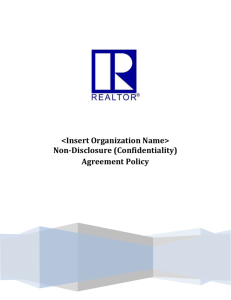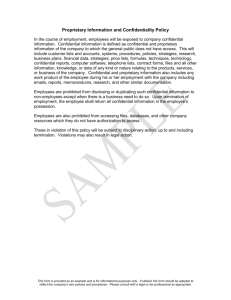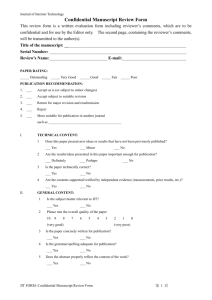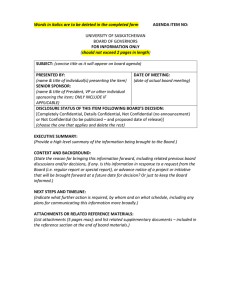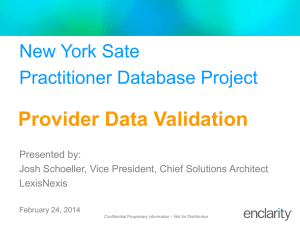Excerpt from A Guide for Successful Institutional-Industrial Collaborations: Researcher Guidebook By
advertisement
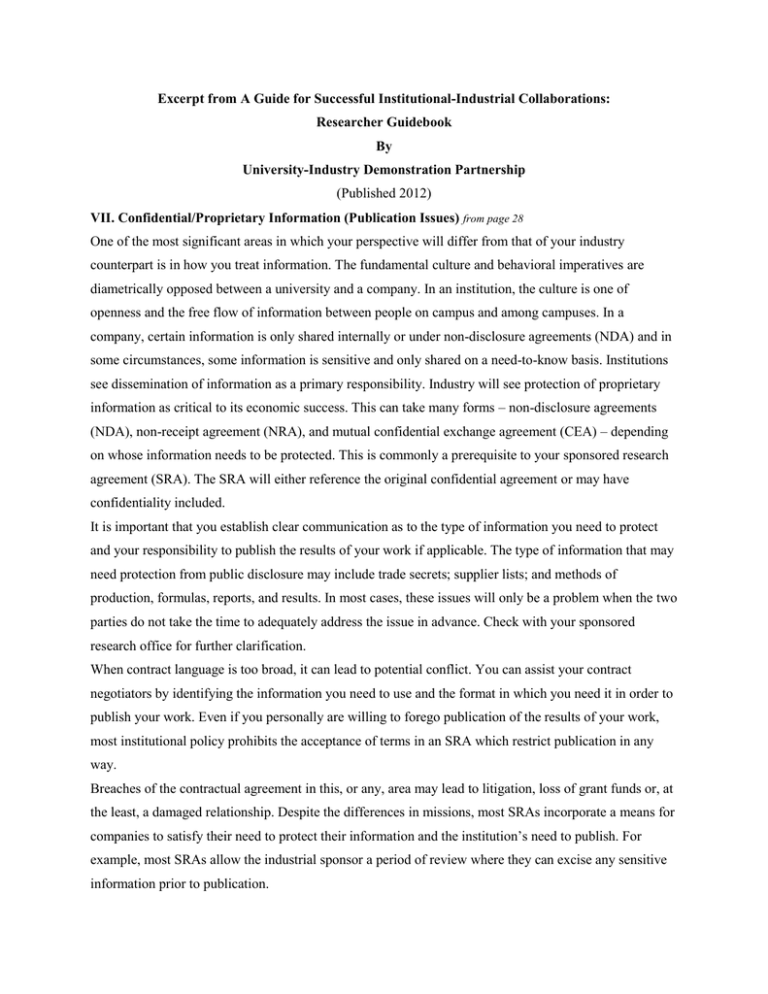
Excerpt from A Guide for Successful Institutional-Industrial Collaborations: Researcher Guidebook By University-Industry Demonstration Partnership (Published 2012) VII. Confidential/Proprietary Information (Publication Issues) from page 28 One of the most significant areas in which your perspective will differ from that of your industry counterpart is in how you treat information. The fundamental culture and behavioral imperatives are diametrically opposed between a university and a company. In an institution, the culture is one of openness and the free flow of information between people on campus and among campuses. In a company, certain information is only shared internally or under non-disclosure agreements (NDA) and in some circumstances, some information is sensitive and only shared on a need-to-know basis. Institutions see dissemination of information as a primary responsibility. Industry will see protection of proprietary information as critical to its economic success. This can take many forms – non-disclosure agreements (NDA), non-receipt agreement (NRA), and mutual confidential exchange agreement (CEA) – depending on whose information needs to be protected. This is commonly a prerequisite to your sponsored research agreement (SRA). The SRA will either reference the original confidential agreement or may have confidentiality included. It is important that you establish clear communication as to the type of information you need to protect and your responsibility to publish the results of your work if applicable. The type of information that may need protection from public disclosure may include trade secrets; supplier lists; and methods of production, formulas, reports, and results. In most cases, these issues will only be a problem when the two parties do not take the time to adequately address the issue in advance. Check with your sponsored research office for further clarification. When contract language is too broad, it can lead to potential conflict. You can assist your contract negotiators by identifying the information you need to use and the format in which you need it in order to publish your work. Even if you personally are willing to forego publication of the results of your work, most institutional policy prohibits the acceptance of terms in an SRA which restrict publication in any way. Breaches of the contractual agreement in this, or any, area may lead to litigation, loss of grant funds or, at the least, a damaged relationship. Despite the differences in missions, most SRAs incorporate a means for companies to satisfy their need to protect their information and the institution’s need to publish. For example, most SRAs allow the industrial sponsor a period of review where they can excise any sensitive information prior to publication. It is important to remember that the information you possess has value to your institution. Before you hold any discussions (including informal ones) with an outside party regarding your work and plans to advance the science, contact the individual(s) in your organization responsible for negotiating SRAs. Staff in the contracting office can assist by suggesting ways to protect information you disclose, such as completing an NDA. Do not sign an NDA without organizational review and approval. In some instances there may be agreements that can block you from publishing work already performed. The maintenance of confidential information is in the interest of all parties to an agreement, as it allows corporate partners the ability to obtain outside research assistance without compromising proprietary information, while allowing institutional researchers access to information that would not be otherwise obtainable. Key Points on Confidential/Proprietary Information (Publication Issues) for the Institutional Researcher • Be aware that Institutions see dissemination of information as a primary responsibility while Industry will see protection of proprietary information as critical to its economic success. • Be prepared to execute some type of confidential agreement as a prerequisite to working with industry due to the importance to the industry to protect their competitive advantage. •Insure that your publication rights are protected if applicable.
